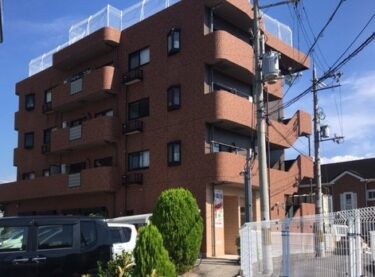Bible is our Althority
Our prayer is to seek the biblical truth taught by Jesus and the apostles, and to put it into practice.
Trinity Grace Church believes in the inerrancy of the Bible.
We believe that for those who are truly saved, every word of Scripture is precious and meaningful.
Therefore, we consider it essential to seek His truth by studying and meditating on His Word as we carry out our ministry.
If our faith were irrelevant, we would not see any fruit.
Our Approach to Reaching Out to People
Our principle to spread the gospel
We follow the example of Paul,
who preached the Gospel while working as a tentmaker.
By supporting ourselves through our work, we are able to meet many people and introduce them to Jesus.
Paul acknowledges that workers have the right to receive support from the believers.
Don’t you know that those who serve in the temple get their food from the temple, and that those who serve at the altar share in what is offered on the altar? 14 In the same way, the Lord has commanded that those who preach the gospel should receive their living from the gospel. 1Corinthians 9:13,14
But Paul chose not to use this right so that nothing would hinder the Gospel.
If we have sown spiritual seed among you, is it too much if we reap a material harvest from you? 12 If others have this right of support from you, shouldn’t we have it all the more?But we did not use this right. On the contrary, we put up with anything rather than hinder the gospel of Christ. 1Crinthians 9:11,12
Most Japanese people are either Buddhists or non-religious.
Christianity was banned for about 260 years, starting in 1613.
Unlike America or European countries, Japan does not have a Christian background.
Many people have no idea about Jesus—for example, where He lived or why He died.
Paul chose a self-supporting ministry to ensure that nothing would hinder the Gospel.
We want to follow his example in evangelizing people.
We believe that a “tentmaker-style” mission is suitable for Japan.
Because of the long and severe period of persecution, many Japanese people prefer not to become deeply involved in any particular religion.
As a result, very few people visit churches in Japan.
We believe that tentmaker-style evangelism is effective in this situation.
Our Mission field is ” Grace English School”.
We have been running an English school in the southern part of Osaka, Japan, since 2001.
Our mission approach is to meet people through teaching English and to introduce them to Jesus.
We have special opportunities to share the Gospel with our students, such as our summer event in July and Christmas event in December.
During these events, we talk about the meaning of the cross, original sin, and more.
Our part is to share the Gospel with them.
We know that God is the ultimate authority in salvation.
We proclaim the Gospel, trusting that God will open the hearts of those who hear it.
Spiritual Conditions in Japan
Most Japanese people worship various gods but do not deeply believe in any of them.
They worship gods according to their needs.
For example, when a family member passes away, they visit temples.
When they want to make wishes, they go to shrines.
They want Christian pastors to officiate their weddings.
They also have Christmas parties in December.
Buddism and Shintoism events take place.
January: New Year’s Wish
People go to shrines to make wishes.
February: Bean Throwing
People throw beans to drive out demons.
March: Doll Festival
People display dolls at home.
(Originally, the dolls were offered to take away their sins.)
July: Star Festival
People make wishes to the stars.
August: Obon Festival
A time to remember ancestors. Monks are invited to pray for the dead.
People visit graves and decorate Buddhist altars to welcome the souls of the deceased.
Family members gather and share a big meal during this time.
October: Danjiri Festival
This is a Shinto festival. People pull portable shrines and parade through their town, shouting and dancing.
Young and old enjoy drinking and chatting. This is a very popular event in Japan.
December: New Year’s Eve Event
People go to temples and ring the temple bell to have their sins forgiven.
Japanese people believe dead souls are living and protecting them.
Japanese people believe that their deceased family members live in heaven and protect them.
They love their deceased relatives and want to comfort them.
Ancestor worship is considered an act of great respect in Japan.
Therefore, they pray for the dead, offer food, and burn incense.
They also invite monks to pray for their ancestors.
They have mixed feelings.
Japanese people have a fear of the dead.
They believe that if they don’t properly care for their ancestors, angry spirits may bring them misfortune, such as sickness, poverty, or shame.
Monks and fortune tellers often advise them to take care of their family graves and altars.
Living member want to pray for their deseiced family.
People want to pray for their deceased family members.
Those who are nearing death hope that others will pray for them.
Japanese people value their relationships with siblings and parents.
Many want to do something for their deceased family members.
So, they create altars and pray for them.
This tendency becomes stronger as the age of the surviving family members increases.



